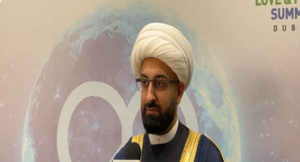Erdogan uses the weaponised judiciary to block Imamoglu, his strongest rival for presidency
Nicosia [Cyprus] December 19 (ANI): Turkish President Recep Tayyip Erdogan has used the weaponised judiciary of his country — which he has turned into an instrument of intimidation and coercion to stifle any criticism against him — to block the candidacy of Istanbul mayor Ekrem Imamoglu, who is seen as Erdogan’s strongest challenger in the June 2013 elections.
However, political analysts see this court decision as a serious blunder on the part of Erdogan as it could unite the opposition parties round a single candidate against him. A Turkish court on Wednesday sentenced Istanbul’s popular mayor Ekrem Imamoglu, of the main opposition Republican’s Peoples’ Party (CHP), to two years and seven months in prison on charges of insulting members of the Supreme Electoral Board following his big victory in Istanbul’s controversial election in 2019.
Imamoglu’s team said it would appeal the decision, while the prosecutor found the sentence insufficient and appealed to a higher court. In case the verdict is upheld, the mayor will lose his office and will be banned from running in the 2023 presidential elections.
The Istanbul mayor was tried for a speech in which he had said that those who annulled the initial 2019 vote were ‘fools’. However, Imamoglu insisted that he used that phrase not against the Supreme Electoral Board but in response to a question put to him by a journalist who asked him about a statement made by Interior Minister Suleyman Soylu who had described Imamoglu as ‘a fool’.
It should be noted that in the Istanbul mayoral elections held in March 2019, Imamoglu won by a slender 0.2 percent of the vote. Erdogan claimed that there were thousands of “suspicious votes” and the elections were subsequently cancelled.
In the repeat elections in June, Imamoglu scored a much bigger victory against Binali Yildirim- the candidate supported by AKP and Erdogan -and increased the difference by 792,000 votes or 10 percent . This was a huge defeat for AKP and Erdogan, who considered Istanbul as his home turf.
The harsh sentence passed on Imamoglu was widely seen in Turkey as an attempt with a trumped — up charge to prevent the strongest possible candidate of the opposition to stand against Erdogan, who is facing the biggest political challenge in his long career.
Erdogan’s domination of Turkish politics was dented from the sky-high annual inflation of 85.5% and the persisting economic crisis that impoverished millions of Turks. This time Erdogan is not so sure that he will be re-elected, and it is generally believed that he tried get rid of Imamoglu his most popular rival, using the prosecutors and judges he controls.
Suspicions about undue political influence were raised by the fact that the judge trying the case was replaced before the hearing in November.
Tens of thousands of people and five of the six opposition leaders gathered outside the Municipality’s offices on Thursday, protesting about Imamoglu’s conviction and the political ban, chanting slogans against the government and calling for its resignation.
Addressing the people, Imamoglu said that the verdict of the court was “political and unlawful and proved that there is no justice in today’s Turkey”.
US State Department spokesman Ned Price said Washington regretted and was disappointed by the ruling.
The rapporteur on Turkey of the European Union, Nacho Sanchez Amor, expressed disbelief at the verdict which he described as “inconceivable” and added: “Justice in Turkey is in a calamitous state, grossly used for political purposes. It is a very sad day.”
Even former President Abdullah Gul, a cofounder of the AKP, expressed his strong disagreement with the sentence passed on Imamoglu. In a tweet he wrote: “Today’s court decision is a great injustice not only against Ekrem Imamoglu but also against Turkey. The will of the people is above all. I believe the higher courts will correct this mistake.”
An EU report released last October says that as a result of undue pressure on judges and prosecutors, the Turkish judiciary lacked independence and “continued to systematically target members of the opposition parties in parliament.”
It should be noted that the six opposition parties which last February formed an alliance dubbed the “Table of Six” with a view to abolishing the executive presidential system and putting an end to Erdogan’s almost absolute power in Turkey, have been unable so far to agree on a single candidate that would challenge Erdogan.
The sentencing of Imamoglu has created an outrage against the judiciary and a groundswell of support for the popular mayor, which the heads of the six parties will find difficult to ignore. Apparently, Erdogan, through the state prosecutor, aimed to remove Imamoglu as mayor of the largest city in Turkey and at the same time ban his political nemesis from contesting the elections.
On Saturday, in his first comments on the subject, Erdogan said:” This debate has nothing to do with me or with our nation. There’s still no final court decision yet. The case will go to the Court of Appeals and the Court of Cassation. If the courts have made a mistake, it will be corrected. They’re trying to pull us into this game.”
However, given the fact that the judiciary has bent to Erdogan’s will, these words have a hollow ring.
By seeking to jail Imamoglu, Erdogan may have unwittingly helped the opposition parties anoint a candidate who is able to replace him. His personal experience should have prevented him from taking that course.
When Erdogan was Istanbul mayor in 1999 he was jailed for four months, as the court convicted him of inciting religious hatred, because he had recited a poem the government at the time considered to be offending. His incarceration gave a huge boost to Erdogan’s popularity and helped him win the elections.
It is ironic, that he himself made the same mistake as the government which had convicted him. Instead of getting rid of a dangerous challenger, he has in fact increased Imamoglu’s popularity and chances of being chosen as the joint candidate of the six opposition parties.






